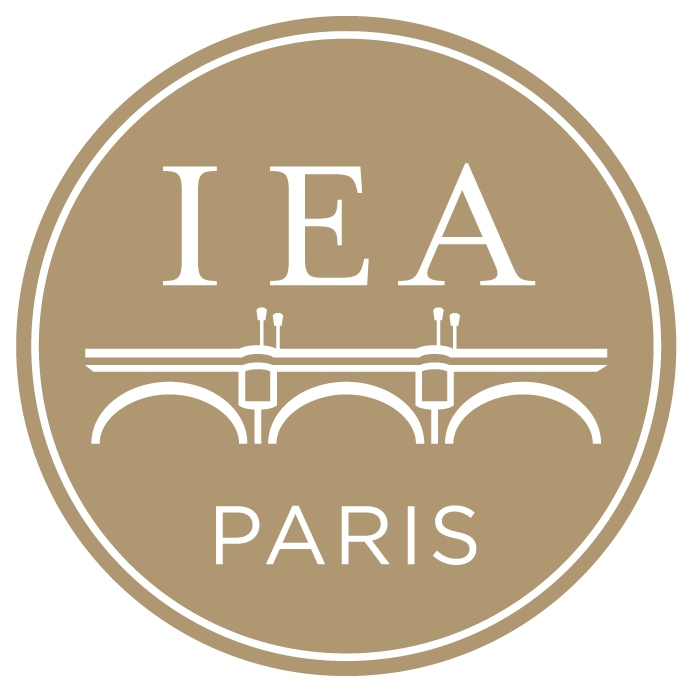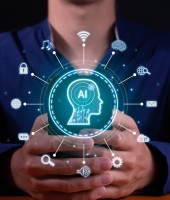Insights Surrounding the Future Use and Consequence of AI in Practice. An Interactive Workshop
Workshop organized by the Paris IAS and Carnegie Mellon University - Open Forum for AI, as an official side event of the Paris Artificial Intelligence Action Summit (10-11 February 2025).


![]()
Workshop in English only.
Registration form available at the bottom of the page.
This event has received the official labelling of the AI Action Summit.
![]()
Presentation
Perhaps more than any individual technological breakthrough, policy, or business solution, the way AI is adopted into our life practices will determine its ultimate utility and benefit, both for individuals and for the public sphere.
To prepare, we need to provide decision-makers with a clear view of the impacts of AI in a variety of areas. The widespread adoption of AI by civil society raises major challenges, especially that of adapting these tools - currently developed by companies thanks to advances in engineering - to the institutional, academic and scientific fields.
This workshop aims to illustrate the potential of AI to transform our lives and to propose concrete approaches for using it in a positive way. Through practical demonstrations and realistic scenarios, participants will be invited to go beyond the media discourse and think critically and constructively. The goal is to bring together a community of committed stakeholders (scientists, coders, policy makers, funders, industry) who want not only to investigate the vast field of possibilities opened up by AI, but also to ensure that the arrival of these new technologies will create positive and lasting benefits for humanity.
At the end of this day for AI insiders and specialists, working groups, coordinated by the Paris Institute for Advandced Study (Paris IAS) and Carnegie-Mellon University - Open Forum for AI, will continue these reflections and actions.
Demonstrations of “AI in Practice” will focus on 6 use cases on spaces of transformation
AI in Higher Education
Socratic Books are an LLM-powered educational tool that delivers personalized content and tutoring through conversation, guided by expert-created lesson plans and learning goals. It adapts to each student's pace, interests, and knowledge, ensuring mastery of all learning objectives, and provides instructors with individual student and class-wide learning insights.
AI in Adolescent Development
This demonstration will showcase how an ecosystem of AI systems is now pivotal in formative moments of adolescent development. We will provide examples and scenarios for how pre-teens and teenagers are now receiving information, asking questions, and forming aspects of their identity outside of the structure of family and community, and instead in relationship with a variety of AI systems.
AI in Civil Society
In this demonstration, we will provide two glimpses into possible near futures that show how both positive and negative impacts of AI may permanently change civil society. Looking at how AI is changing the way political information is distributed and processed, how AI is used to create political information and attacks, and how AI can support social services, we provide two visions of what may be coming in the future of the public sphere.
AI in Medicine
This demonstration will provide examples of key AI innovations that are positioned to change medicine based on capabilities and industry demands. Reviewing a few key technologies related to patient-doctor interactions and workflows of medical professionals, we will position the audience to comprehend the vast changes potential in how medical services are delivered.
AI in Workforce
This demonstration will look at how new AI systems are changing the landscape of how we work, how we prepare our populations for work, and the nature of the job market. Leveraging demos of how AI is being used and trends of AI’s impact on job markets, we’ll forecast possible futures for how the workforce may permanently change due to AI.
AI in Research
This demonstration will showcase how the use of AI will revolutionize the way we do research in Social Sciences and Humanities. We will show how we use AI tools chains at the Paris Institute for advanced study, to transcribe, translate, review and post-code qualitative research material (videos, speech, text, case studies etc.) Participants will be able to test their prompts on actual material.
Program (subject to change)
9:15 Coffee and Light Breakfast
10:00 Morning Session: Insights and Consequences [2.5 hours]
➢ Framing Remarks, by Saadi Lahlou, Paris Institute for Advanced Study, Sayeed Choudhury, Carnegie Mellon University, Michael Skirpan, Carnegie Mellon University [10 mins]
➢ 6 Demonstrative Scenarios – Use cases [80 mins]
➢ Discussion [60 mins]
1:00PM Lunch
2:00PM Afternoon Session: Aligning AI with Desirable Futures
➢ Review of Scenarios
➢ Future Directions and Collaboration, with the aim of creating working groups for those interested in concrete projects.
5:00PM End
Registration is mandatory. See form below


